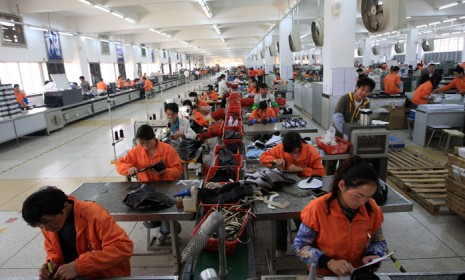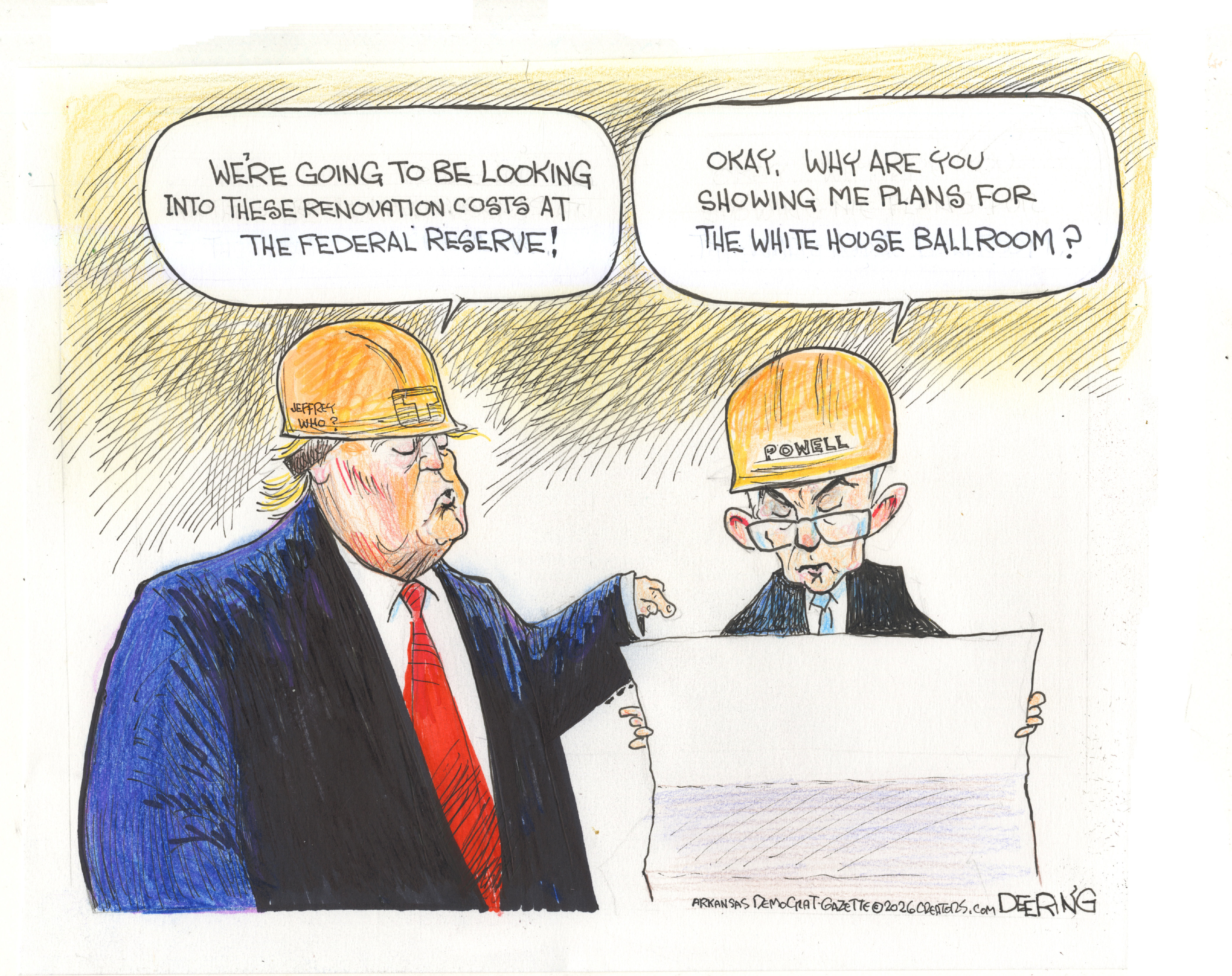Is the era of a 'cheap China' coming to an end?
China has long been known as a teeming source of inexpensive labor, but many businesses say that's no longer true

China's massive cheap labor force helped fuel its economic boom by enabling the country to undersell its more industrialized competitors in the global marketplace. But the "pace of change in China has been so startling that it is hard to keep up," says The Economist, and the "old stereotypes about low-wage sweatshops are as out-of-date as Mao suits." The cost of labor is rising, and rapidly. China is even importing more than it exports, posting its largest trade deficit in 12 years in February — and some are saying that's a good thing. Here, a guide to the worker's evolution in China:
How much more are Chinese workers earning?
Quite a bit. Wages for companies on the Pearl River Delta, one of the country's manufacturing hubs, have risen by 10 percent since January, according to a new report. The minimum wage across China rose 22 percent in 2011, says Britain's Financial Times. By one measure, rising wages could double — or possibly triple — the cost of manufacturing in China by 2020. "The era of cheap China may be drawing to a close," says The Economist.
The Week
Escape your echo chamber. Get the facts behind the news, plus analysis from multiple perspectives.

Sign up for The Week's Free Newsletters
From our morning news briefing to a weekly Good News Newsletter, get the best of The Week delivered directly to your inbox.
From our morning news briefing to a weekly Good News Newsletter, get the best of The Week delivered directly to your inbox.
Does it hurt China's competitiveness?
Yes, for certain products. Rising costs in China are driving manufacturers who depend on super-cheap labor to less developed countries, such as Bangladesh and Vietnam. But China is moving past the types of products those factories make. "Rather than manufacture shoes, socks, and T-shirts for global consumers," says John Tammy at RealClearMarkets, China wants its population to pursue "higher value work." China may be well-positioned for such a transition. It remains attractive to foreign businesses because its workers are more productive, and its supply chains are "sophisticated and supple," says The Economist.
So is China changing the way it does business?
It appears so. Until now, China has relied on its "huge trade machine" to create wealth, say Wei Gu and Edward Hadas at Reuters. The country's recent trade deficits, however, show that more of its imports are "going straight into domestic consumption." That's a sign that China is getting richer and buying more goods — not just selling them to wealthier foreign nations. China's deficits, says Tammy, "are an undeniable sign of economic growth and progress."
A free daily email with the biggest news stories of the day – and the best features from TheWeek.com
Sources: Economist, Financial Times, RealClearMarkets, Reuters, Wall Street Journal
-
 Political cartoons for January 17
Political cartoons for January 17Cartoons Saturday’s political cartoons include hard hats, compliance, and more
-
 Ultimate pasta alla Norma
Ultimate pasta alla NormaThe Week Recommends White miso and eggplant enrich the flavour of this classic pasta dish
-
 Death in Minneapolis: a shooting dividing the US
Death in Minneapolis: a shooting dividing the USIn the Spotlight Federal response to Renee Good’s shooting suggest priority is ‘vilifying Trump’s perceived enemies rather than informing the public’